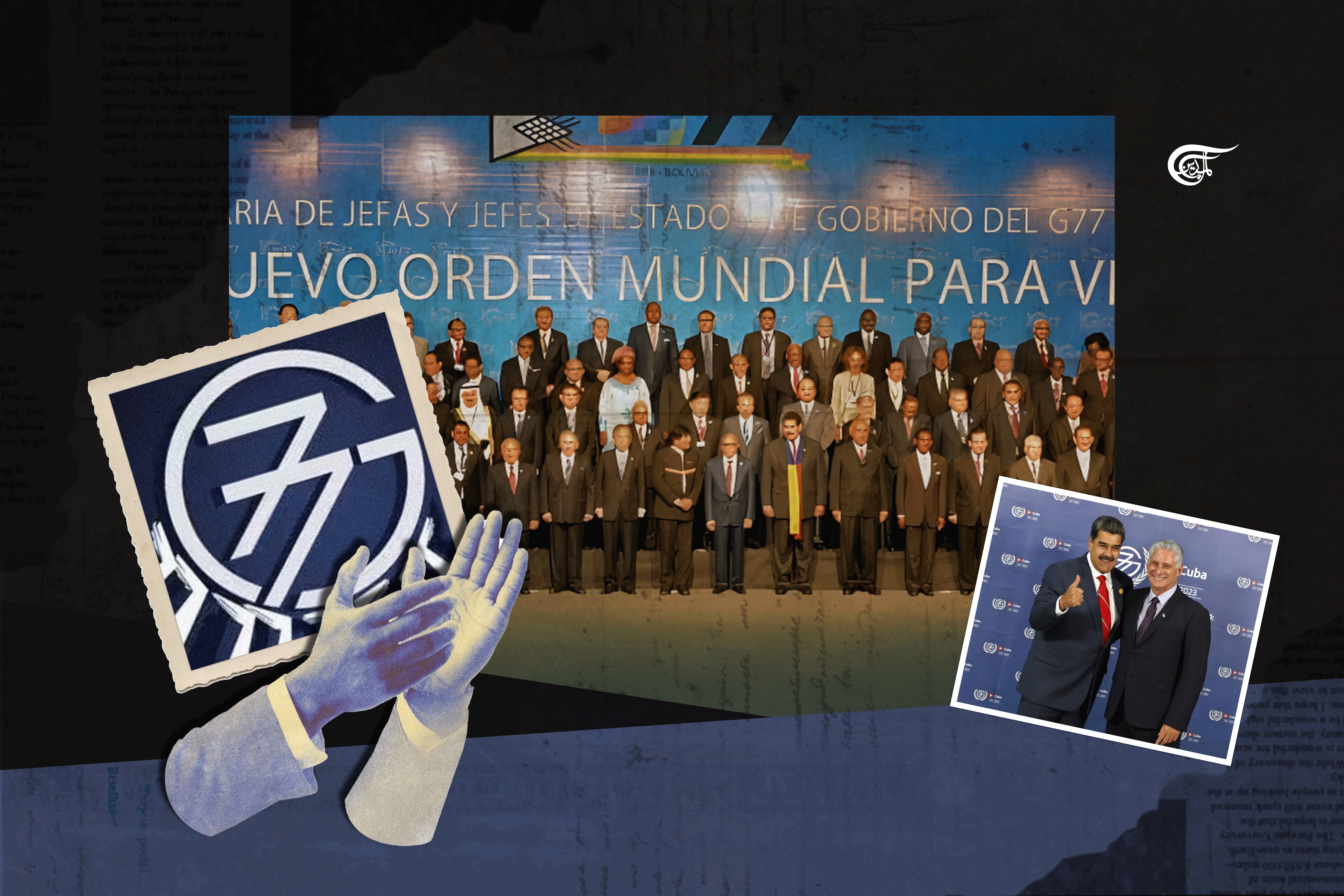The G77+China Havana Summit is a bold step toward building a multilateral world
The G77+China Summit has given the Cuban President a perfect opportunity to strengthen ties with like-minded developing countries and to raise the voice of the Global South against America's "aggressive imperialist policy."
Accepting the mantle of the rotating presidency of the G77, formally known as the “Group of 77 and China” from Pakistan on January 12, 2023, Cuba hosted the G77+China Leaders’ Summit in the capital city of Havana on September 15 and 16 in its capacity as chair of the largest intergovernmental organization by bringing together 134 developing nations, in particular, Southern countries, on a single platform to promote their shared economic interests while enhancing their capacity for collaborative discussions on cooperation, development and innovation. This was the first time the Latin American country hosted the notable event since joining the G77 in 1971.
The two-day conference took place on the heels of the G20 Leaders’ Summit hosted by India on September 9 and 10 in New Delhi. Under the theme of "Current Development Challenges: Role of Science, Technology and Innovation," the second day of the summit saw the adoption of the 47-article Havana Final Declaration, which is significant because all countries in the Global South defend the demands of developing countries amid the geopolitical divide while emphasizing on making the Global South a powerful force in the multipolar world.
Cuba breaks the diplomatic embargo of the US-led Western world
Cuba took the reins of the G77 and China in a bleak picture of the world, which is facing a post-COVID-19 economic recession, geographical conflict, climate change, and food and energy crisis. As the United Nations Secretary-General Antonio Guterres said at the handover ceremony on January 12, “Year in and year out, you stand together to discuss, debate and amplify global solutions to realize the better, fairer and more sustainable future every country deserves.” He stressed the need to re-energize the global economy through massive support to the developing world and expressed gratitude for the G77 and China's steadfast support of the UN to make progress toward the Sustainable Development Goals (SDGs).
The G77+China Summit has undoubtedly given Cuban President Miguel Diaz-Canel Bermudez a perfect opportunity to strengthen ties with like-minded developing countries and to raise the voice of the Global South against America's “aggressive imperialist policy." Notably, the US administration has imposed wide-reaching trade and economic sanctions on communist-run Cuba for more than 60 years and re-designated it as a "state sponsor of terrorism" on January 12, 2021, under the former Trump administration.
It should be recalled here that welcoming Iranian President Ebrahim Raisi on June 15 in Havana, President Diaz-Canel said, “Venezuela, Nicaragua, Cuba, and Iran are among the countries that have had to heroically confront sanctions (...) threats, blockades and interference by Yankee imperialism and its allies with a tenacious resistance.”
As such, the participation of more than 100 delegations, including about 30 heads of state or government at the G77 and China Summit in the Cuban capital just a few days before the UN General Assembly in New York highlighted the confidence placed in Cuba. Undoubtedly, the presence of world leaders including Brazilian President Luiz Inacio Lula da Silva, Venezuelan President Nicolas Maduro, Colombian President Gustavo Petro, Mozambican President Filipe Nyusi, Argentina's President Alberto Fernandez, Palestinian President Mahmoud Abbas, Angola's Joao Lourenco, Vietnam’s Deputy Prime Minister Tran Hong Ha, to name a few, attests to the fact that the Caribbean island nation is not isolated by members of the G77, but hosting the G77 and China summit is a "great victory" for Cuba against the US diplomatic blockade.
Importance of Cuba’s G77+China Summit
Formed in 1964, the G77 and China grouping currently has 135 developing and emerging countries after the reincorporation of Mexico at the Havana Summit. The block represents more than 80 percent of the world's population and two-thirds of the United Nations membership. They have a vision of promoting collective economic interests and strengthening the capacity of member states on economic and sustainable development issues within the United Nations and South-South cooperation frameworks.
Taking the leadership of the G77 plus China alliance, Cuba’s President Diaz-Canel highlighted the summit’s importance in strengthening unity and addressing global challenges. Notably, in his speech at the Dialogues of the 15th Summit of BRICS in Johannesburg, South Africa, on August 24, 2023, President Diaz-Canel amplified the voice of the Global South by stating that “Western developed countries and big transnationals have designed an international order that is hostile to the progress of our nations in the South and has proved to be effective only for exiguous minorities,” a direct rebuke to the US-led Western world.
At the opening of the two-day conclave on September 15, President Diíaz-Canel emphasized the empowerment of the Global South in global governance. “The countries of the South can no longer bear the weight of all the misfortunes and the only valid path is to walk together in solidarity,” he said.
This year's G77 plus China Forum is focused on science, technology, and innovation to accelerate the implementation of the 2030 Agenda for Sustainable Development and the achievement of the SDGs. Echoing the summit's theme on science and innovation, the Cuban President took a jibe at the Western world by stating that “90 percent of the investment in innovation in the pharmaceutical sector is concentrated on typical diseases of northern countries and only 10 percent on typical diseases of southern countries. This must be rebalanced and the momentum of this summit is very important."
It’s really encouraging to hear that the G77+China Havana Summit declared September 16 as the Day of Science, Technology and Innovation in the South as mentioned in the 46 paragraph of the Havana Declaration.
Pointing out the common rights and interests of developing countries, paragraph 29 of the Havana Declaration reads, “We call upon the international community and relevant bodies of the United Nations system to take urgent action to promote unhindered, timely and equitable access for developing countries to health-related measures, products and technologies necessary to deal with the current and future pandemic prevention preparedness and responses.”
Commitment to new global order
On the other hand, at the opening of the meeting, UN chief Antonio Guterres in his inaugural speech called for a world that was "more representative and responsive to the needs of developing economies". Addressing the group as "a champion of multilateralism," Guterres called on G77 and China to "champion a system rooted in equality; champion a system ready to reverse the injustice and neglect of centuries; and champion a system that delivers for all humanity and not for the privileged."
Looking at the digital divide between countries of the North and South, delegates gathered at the Havana Summit highlighted the need for science, innovation, and technology to serve all. Undoubtedly, the Summit promoted justice and fairness in the development of science and technology.
“We urge the United Nations Regional Commissions, Agencies, Funds and Programs, in particular UNDP, UNESCO, UNCTAD, UNIDO, ITU and the UN Office for South-South Cooperation, within their respective mandates, to make additional efforts to support developing countries in strengthening institutional frameworks and public policies related to science, technology and innovation,” paragraph 43 of the Havana Declaration reads.
The Havana Declaration restated their longstanding demand for a more equitable international economic and social order, emphasizing that this can only be achieved by ending the technological dominance of developed countries.
China is Cuba’s good friend
Since the formation of the Group of 77, China has supported the block's legitimate demands and maintained cooperative relations with member countries. As the world’s second-largest economy, China always supports the voice of the Global South and advocates for its interests at multilateral forums.
Since China and Cuba established diplomatic relations in September 1960, Sino-Cuban relations have blossomed with each passing year despite the constantly changing international situation.
Welcoming President Diaz-Canel to Beijing's Great Hall of the People last November, President Xi emphasized that “China and Cuba are good friends who trust each other, good comrades committed to the same cause, and good brothers sharing weal and woe.”
During their meeting on the sidelines of the BRICS Summit on August 23, President Xi stressed that Cuba, as the current chair of the G77 and China, has made positive contributions to strengthening the unity and cooperation of developing countries.
Representing China at the G77+China Summit, Li Xi, a member of the Standing Committee of the Political Bureau of the Communist Party of China (CPC) Central Committee, said, “China is the world's largest developing nation and a natural member of the Global South. We are ready to work with Cuba and other G77 members to open a new chapter in South-South cooperation in quest for greater development through stronger solidarity, build a Global South community with a shared future, and usher in a new era of common development.”
The G77 and China; an important platform for safeguarding multilateralism
The G77+China is an important platform for cooperation among developing countries mostly from the Global South. India is one of the founding members of G77. Although Indian Prime Minister Narendra Modi projected himself as the leader of the "Global South" during the recently concluded G20 summit, it is unfortunate that no high-profile Indian minister attended the G77 and China summit. India was represented at the G77 summit by Sanjay Verma, Secretary (Western Division), Ministry of External Affairs (MEA). In his remarks at the event, the Indian diplomat called on the group to speak with one voice at the United Nations on economic and development challenges without being distracted by bilateral issues and also strengthen the unity and solidarity of the group.
The Havana Summit is a stepping stone for the construction of a multilateral world since the global multilateral system is in crisis due to protectionism, unilateralism, and hegemonism. It is hoped that Cuba and other members of the G77 will better protect the common interests and development rights of developing countries under the UN framework.

 Rabi Sankar Bosu
Rabi Sankar Bosu
 10 Min Read
10 Min Read












